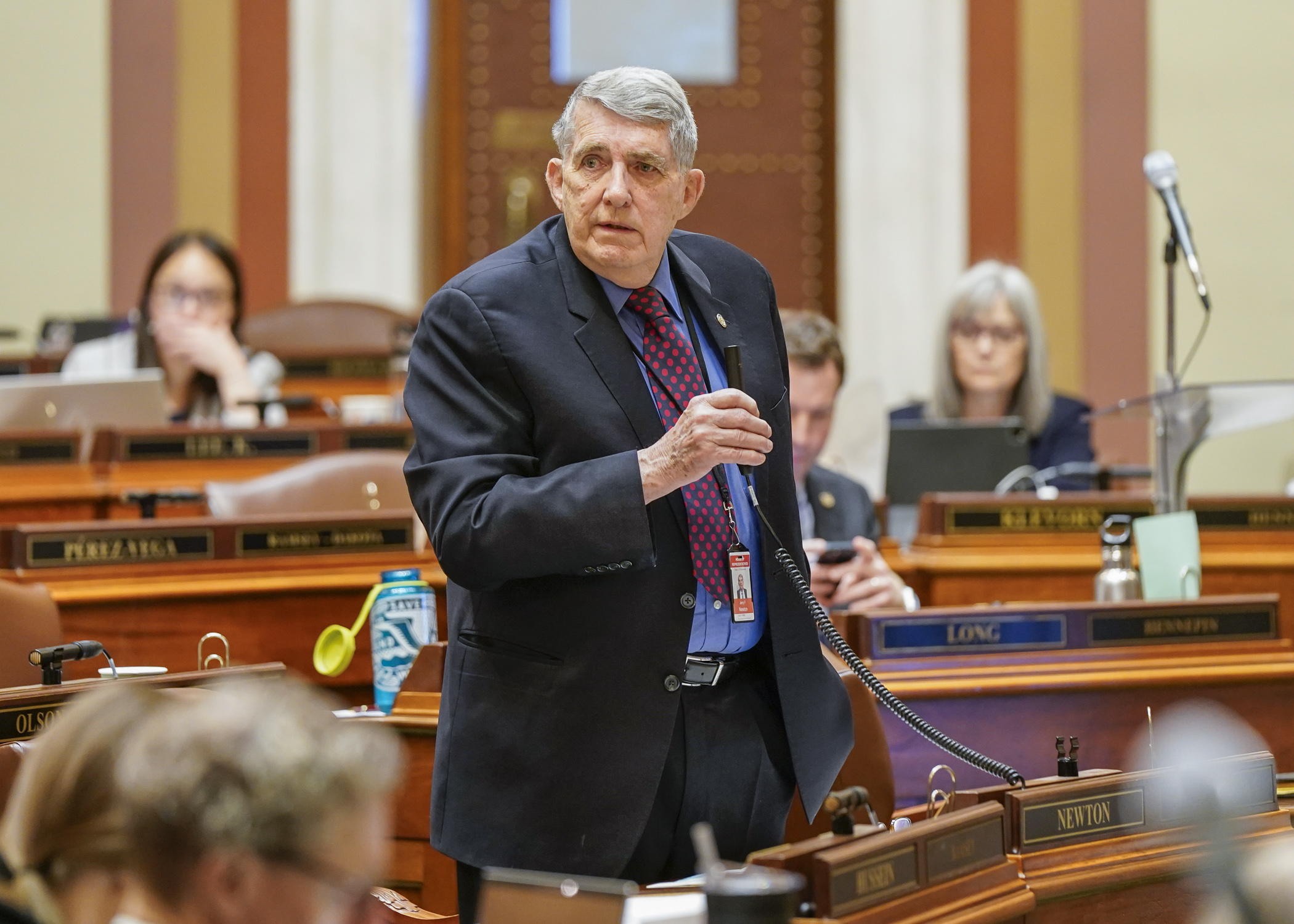Veterans, military affairs budget bill marches forward with House passage

Former and current service members would get a significant funding boost from the omnibus veterans and military affairs finance bill passed Tuesday in the House.
Members voted 131-0 to pass, as amended HF1937, sponsored by Rep. Jerry Newton (DFL-Coon Rapids). It now heads to the Senate.
The direct General Fund appropriation in the bill during the upcoming biennium is $368.96 million, a 53.9% increase over base funding. It includes:
- $276.8 million for Department of Veterans Affairs – a 46.8% increase over base;
- $92.1 million for the Department of Military Affairs – an 80% increase over base.
[MORE: See the spreadsheet]
Newton said the bill largely gives the agencies and Gov. Tim Walz what they asked from the Legislature and includes a number of other proposals from both sides of the aisle.
“We have a good bill,” he said. “It’s completely bipartisan.”
Rep. Matt Bliss (R-Pennington), who serves as the lead Republican on the House Veterans and Military Affairs Finance and Policy Committee, said he agreed, praising the bill and bipartisan collaboration that helped create it.
“The veterans bill shows you what can be done in a bipartisan, or nonpartisan, manner,” he said at a morning press briefing. “When you work together you really get some good bills.”
Bliss said the omnibus bill contains provisions from both sides of the aisle and that even the bills that were partisan when they were introduced received bipartisan support.
“This is a good bill,” he said.
The VA’s appropriation would be designated for two main categories: $190.35 million for veterans health care and $86.5 million for veterans programs and services.
With three new facilities under construction in Bemidji, Montevideo and Preston that are due to open later this year, the state’s veterans homes would receive $188.84 million, which includes money to pay for startup costs such as hiring and training new staff.
The programs and services appropriations include $15 million for service bonuses to post-9/11 veterans and the bill would also prohibit burial fees in state veterans cemeteries. That would apply not only for veterans but also their spouses and dependents.
Major appropriations in military affairs portion of the bill include $17.6 million to build an Army Combat Fitness Test Field House in Arden Hills for soldiers to train for the tests they must pass to maintain physical readiness, and $17 million for design and construction of the Minnesota Military Museum at Camp Ripley.
An amendment offered by Newton to make minor technical fixes to the bill was adopted, but the other amendment offered failed on a voice vote. It came from Rep. Bjorn Olson (R-Fairmont) and would have redirected funds from one post-traumatic stress disorder treatment program to another.
Olson said the $800,000 appropriation that would go to the Veteran Resilience Project should go to the Mayo Clinic instead. He said the former program is still being established and is “not ready for primetime” and the money would do more good at Mayo.
“The end goal is results, the end goal is not to throw money away, and that is my concern,” Olson said, adding that he still supported the bill as a whole.
Newton asked members to vote against the amendment but pledged he would make adjustments if they were needed as the bill heads to conference committee.
Related Articles
Search Session Daily
Advanced Search OptionsPriority Dailies
Ways and Means Committee OKs House budget resolution
By Mike Cook Total net General Fund expenditures in the 2026-27 biennium will not exceed a hair less than $66.62 billion.
That is the budget resolution approved Tuesday by the House Ways...
Total net General Fund expenditures in the 2026-27 biennium will not exceed a hair less than $66.62 billion.
That is the budget resolution approved Tuesday by the House Ways...
Minnesota's budget outlook worsens in both near, long term
By Rob Hubbard It looks as if those calling for less state spending could get their wish, judging from Thursday’s release of the February 2025 Budget and Economic Forecast.
A state su...
It looks as if those calling for less state spending could get their wish, judging from Thursday’s release of the February 2025 Budget and Economic Forecast.
A state su...